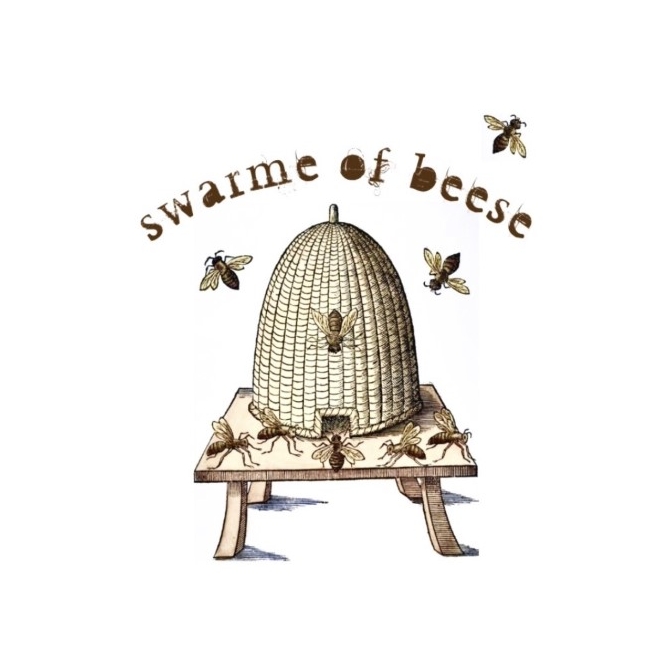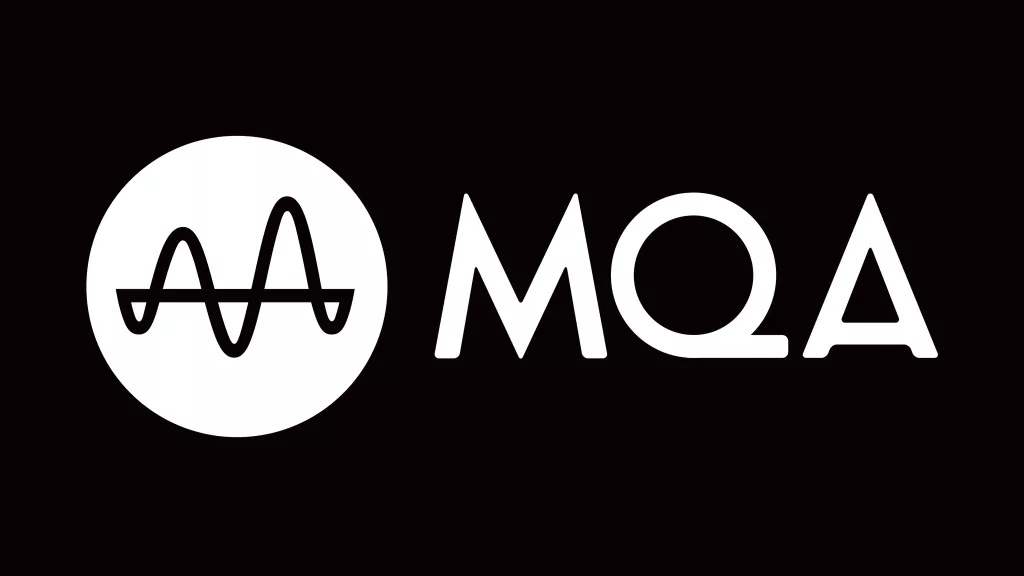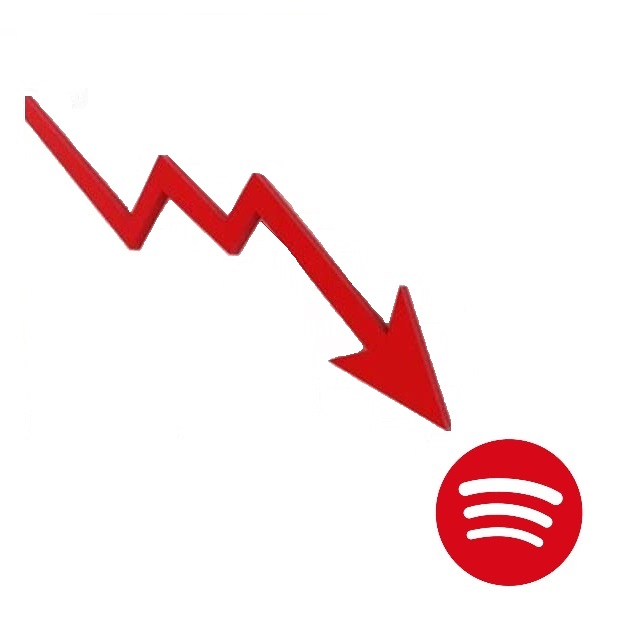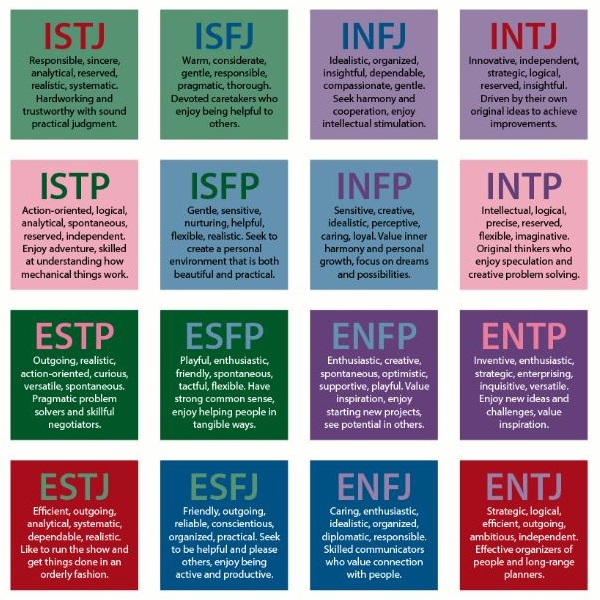 Some wishes never come true. For instance, a long-awaited album filled with great expectations. In my annual blog entry "What to expect and wish for in..." I have had the same wish for five years in a row: a new album from The Victor Mourning. The first years were not very encouraging and no sign of activity, but then a glimpse of hope followed. The band members were located in Austin again, playing and recording for a new album. And then came the pandemic. On June 1st 2021 they wrote on Facebook: "These past few years have been a time of tremendous change for everyone, and we’re no exception. As we emerge from a year of isolation, we’ve decided to change our band name to reflect the direction we’ve been heading in for some time now. We’re pleased to announce that the band that began its life as The Victor Mourning is now Swarme of Beese. (Of course, there’s a story behind the new name, but we’ll save that for later.) You’ll still recognize the stripped-down underpinnings of our acoustic hillbilly noir sound, but you might also notice a bit more texture and an extra layer of psychedelic folk among our wide-ranging influences. More than ever, the songs meander off from the main roads and through dark paths in the backwoods, to the eerie places where boundaries between the real and the imaginal disappear. A source close to the band has described the sound as “hillbillies who got lost on their way to the moonshine still and stumbled upon some mushrooms.” Our first order of business is to finish recording the album we started before COVID struck, and to get those captured sound waves pressed into grooves of glorious vinyl later this year. There’s a strong likelihood that we’ll play a live show or two when it’s released. We hope you’ll join us on this journey, and maybe even take a moment to “like” our new page, where we’ll keep you updated as things progress. As always, we deeply appreciate your support! — Stephen, Lynne, & Stefan". Well, my The Victor Mourning-wish will never come true. But, things could be a lot worse, like if Stephen, Lynne, & Stefan would call it quits. I will replace my old TVM-wish with an album from Swarme of Beese. However, I prefer cd over vinyl.
Some wishes never come true. For instance, a long-awaited album filled with great expectations. In my annual blog entry "What to expect and wish for in..." I have had the same wish for five years in a row: a new album from The Victor Mourning. The first years were not very encouraging and no sign of activity, but then a glimpse of hope followed. The band members were located in Austin again, playing and recording for a new album. And then came the pandemic. On June 1st 2021 they wrote on Facebook: "These past few years have been a time of tremendous change for everyone, and we’re no exception. As we emerge from a year of isolation, we’ve decided to change our band name to reflect the direction we’ve been heading in for some time now. We’re pleased to announce that the band that began its life as The Victor Mourning is now Swarme of Beese. (Of course, there’s a story behind the new name, but we’ll save that for later.) You’ll still recognize the stripped-down underpinnings of our acoustic hillbilly noir sound, but you might also notice a bit more texture and an extra layer of psychedelic folk among our wide-ranging influences. More than ever, the songs meander off from the main roads and through dark paths in the backwoods, to the eerie places where boundaries between the real and the imaginal disappear. A source close to the band has described the sound as “hillbillies who got lost on their way to the moonshine still and stumbled upon some mushrooms.” Our first order of business is to finish recording the album we started before COVID struck, and to get those captured sound waves pressed into grooves of glorious vinyl later this year. There’s a strong likelihood that we’ll play a live show or two when it’s released. We hope you’ll join us on this journey, and maybe even take a moment to “like” our new page, where we’ll keep you updated as things progress. As always, we deeply appreciate your support! — Stephen, Lynne, & Stefan". Well, my The Victor Mourning-wish will never come true. But, things could be a lot worse, like if Stephen, Lynne, & Stefan would call it quits. I will replace my old TVM-wish with an album from Swarme of Beese. However, I prefer cd over vinyl.
 I hate streaming. One reason is the crappy sound quality. TIDAL think they are better. They offer something called MQA (Master Quality Authenticated). MQA is an audio codec using lossy compression (irreversible compression). This encoding method uses inexact approximations and partial data discarding to represent the content. This is opposed to lossless data compression (reversible data compression), which does not degrade the data. Why doesn't TIDAL offer lossless? The reason is that storage is money. Naturally, the amount of data reduction possible using lossy compression is much higher than using lossless techniques. MQA annoy audiophiles. Neil Young removed his music from the platform in January 2021. "TIDAL is calling their files of my songs Masters. But TIDAL’s MQA files are not my masters. I make my masters - not TIDAL. I made my masters the way I wanted them to sound. If TIDAL referred to their titles as TIDAL MASTERS, I would have no problem, but they don’t. They call them Masters. I had my music removed from that platform. They are not my masters." Neil Young isn't just a grumpy old man, he is also an advocate for audio quality, read more here (opens in a new window). The MQA hype is surrounded by a smokescreen. Not even its creators can explain the MQA technique. It's a lot of nonsense like "temporal deblurring", using digtal signal processing to tamper with the original sonics of the recording. Let's take the abbreviation MQA and break it down into pieces. It's not "Master". "Quality" is debatable and open for interpretation. "Authenticated" is questionable. Any media labeled as MQA under Tidal means that it was directly authenticated by the artist for use with this standard. Well, for sure Neil Young didn't give his approval. MQA is available with the $19.99/month subscription (Hifi). This is a hefty sum. Especially considering that FLAC (Free Lossless Audio Codec) is free. The choice is yours to make.
I hate streaming. One reason is the crappy sound quality. TIDAL think they are better. They offer something called MQA (Master Quality Authenticated). MQA is an audio codec using lossy compression (irreversible compression). This encoding method uses inexact approximations and partial data discarding to represent the content. This is opposed to lossless data compression (reversible data compression), which does not degrade the data. Why doesn't TIDAL offer lossless? The reason is that storage is money. Naturally, the amount of data reduction possible using lossy compression is much higher than using lossless techniques. MQA annoy audiophiles. Neil Young removed his music from the platform in January 2021. "TIDAL is calling their files of my songs Masters. But TIDAL’s MQA files are not my masters. I make my masters - not TIDAL. I made my masters the way I wanted them to sound. If TIDAL referred to their titles as TIDAL MASTERS, I would have no problem, but they don’t. They call them Masters. I had my music removed from that platform. They are not my masters." Neil Young isn't just a grumpy old man, he is also an advocate for audio quality, read more here (opens in a new window). The MQA hype is surrounded by a smokescreen. Not even its creators can explain the MQA technique. It's a lot of nonsense like "temporal deblurring", using digtal signal processing to tamper with the original sonics of the recording. Let's take the abbreviation MQA and break it down into pieces. It's not "Master". "Quality" is debatable and open for interpretation. "Authenticated" is questionable. Any media labeled as MQA under Tidal means that it was directly authenticated by the artist for use with this standard. Well, for sure Neil Young didn't give his approval. MQA is available with the $19.99/month subscription (Hifi). This is a hefty sum. Especially considering that FLAC (Free Lossless Audio Codec) is free. The choice is yours to make.
 Spotify has published their final accounts for 2020. It's a brutal reading. Spotify has been in the red, a business that is operating at a loss, from day one. But, now the colour of the ink used by accountants has turned into glaring red. The Spotify owners faced losses of biblical proportions. Operating loss amounted to €293m ($335 m). The pre-tax loss amounted to €709m ($810m), no less than five times the equivalent loss in 2019. Net loss amounted to €581m ($664) due to a huge income tax benefit of €128m ($146m). In any other business share price would drop like a stone, but this is cloud cuckoo land. The share price has more than doubled in 2020. The business model is built upon providing digital rights management-protected content from record labels and media companies. That makes Spotify vulnerable. The company is dependent on the revenues that subscribers pay and on the music companies from which it licences content. When revenues increase, so do costs. Spotify are caught between a rock and a hard place. The conversion strategy (by providing freemium, users will upgrade to premium) is an error in cognition. After more than 10 years the share of paying users is still below 50 percent. According to the annual report 2020 the company has about 155 million paying (premium) users (of a total of 345 million users), which makes 45 percent (the premium share was actually higher in 2019 and 2018, 46 percent). In any other business dismissal of top management, hard restructuring and merciless cost reduction would follow. Not in cloud cuckoo land. Instead, it's headless expansion ahead. Spotify’s sales and marketing expenditure surpassed a billon for the first time ever in 2020, €1 029m ($1 176m). And what is the right move from the co-founder and CEO Daniel Ek? He wants to buy Arsenal FC. A good opportunity to fulfil a boyhood dream and burn money like a Russian oligarch. The net worth of Daniel Ek is no less than 3.7 billion dollars. The show will go on. The investors are waiting for their return of investment. The enormous losses will continue until the investors loses their patience. Sooner or later they will understand it's time to put the brakes on the expansion. The strategy has always been growth over profit. In the real world it has to be profit over growth. Some believe in webeconomics (new and unproven economic theory). I don't. I believe in science and gravity. What goes up must come down. The standard annual report disclaimer "Our historical results for any prior period are not necessarily indicative of results expected in any future period" is out of place. Their historical results are a very good predictor of future results. The forecast for 2021? More losses are expected. It's the final accountdown.
Spotify has published their final accounts for 2020. It's a brutal reading. Spotify has been in the red, a business that is operating at a loss, from day one. But, now the colour of the ink used by accountants has turned into glaring red. The Spotify owners faced losses of biblical proportions. Operating loss amounted to €293m ($335 m). The pre-tax loss amounted to €709m ($810m), no less than five times the equivalent loss in 2019. Net loss amounted to €581m ($664) due to a huge income tax benefit of €128m ($146m). In any other business share price would drop like a stone, but this is cloud cuckoo land. The share price has more than doubled in 2020. The business model is built upon providing digital rights management-protected content from record labels and media companies. That makes Spotify vulnerable. The company is dependent on the revenues that subscribers pay and on the music companies from which it licences content. When revenues increase, so do costs. Spotify are caught between a rock and a hard place. The conversion strategy (by providing freemium, users will upgrade to premium) is an error in cognition. After more than 10 years the share of paying users is still below 50 percent. According to the annual report 2020 the company has about 155 million paying (premium) users (of a total of 345 million users), which makes 45 percent (the premium share was actually higher in 2019 and 2018, 46 percent). In any other business dismissal of top management, hard restructuring and merciless cost reduction would follow. Not in cloud cuckoo land. Instead, it's headless expansion ahead. Spotify’s sales and marketing expenditure surpassed a billon for the first time ever in 2020, €1 029m ($1 176m). And what is the right move from the co-founder and CEO Daniel Ek? He wants to buy Arsenal FC. A good opportunity to fulfil a boyhood dream and burn money like a Russian oligarch. The net worth of Daniel Ek is no less than 3.7 billion dollars. The show will go on. The investors are waiting for their return of investment. The enormous losses will continue until the investors loses their patience. Sooner or later they will understand it's time to put the brakes on the expansion. The strategy has always been growth over profit. In the real world it has to be profit over growth. Some believe in webeconomics (new and unproven economic theory). I don't. I believe in science and gravity. What goes up must come down. The standard annual report disclaimer "Our historical results for any prior period are not necessarily indicative of results expected in any future period" is out of place. Their historical results are a very good predictor of future results. The forecast for 2021? More losses are expected. It's the final accountdown.

The question therefore arises: why are we prone to believe inaccurate results? The psychologists have three explanations. We want to learn something we didn’t know about ourselves, we want to belong and we want simple ways to understand other people. MBTI ticks in all boxes. Paradoxically, we find new knowledge about ourselves by filling in a form of how we perceive ourselves. Just like a circular argument. An home-made survey found that goths are introvert and intuitive (INFJ, INTJ, INFP and INFP). Well, goths are introspective and sensitive. However, goths comes in many different shapes and forms. You can be a darkly inclined or a happy-go-lucky goth, read more here (opens in a new window). Some people make a clear distinction between goth and gothic music. "Goth" refers to anything affiliated with the subculture, while "gothic" refers to the aesthetic in general, or to a specific style of the music. In the gothic country genre people don't care much about subtle distinctions. MBTI is used in recruitment, putting an effective workteam together or finding your most compatible romantic partner. A test result with a four-letter personality type is a great conversation opener. Pawn is also a four-letter word. A pawn, a person unwittingly used in a scheme and taken advantage of by others, in their game. People are usually not keen to participate in other peoples games. And besides: human beings, especially goths, are too complex to fit in a simple coordinate system.
 I find it hard to embrace new music. I'm hardened concrete in a mold. It's a rare occasion when I find something new and good. At last, something in common with younger generations. However, it gets weird when parents like the same music as their kids. "What’s the thing with Billie Eilish and old farts. They all seem to love her." This blunt question was raised by the oldest daughter of a good friend. OK boomer, what's the thing? We, the old people, are purists. A purist is one who desires that an object or a person are true to its essence and free from adulterating or diluting influences. You don't become a grim purist over night. This is something you develop and finish over time; sharpening your senses. Authencity is crucial. Personally, I have a penchant for female musicians in flowery dresses who lives in old VW buses. Billie Eilish has green hair and baggy clothes. This will do. I like her. A purists worst nightmare is an industry plant. An industry plant is an artist who has a major record label backing them, but presents themselves as a self made musician to create a pseudo organic following. An industry plant is a derogatory term. The idea is to construct a narrative so the artists can become cash cows for the music industry. Billie Eilish has been accused of being an industry plant. She fits the description. Her family has industry ties. Signed to Interscope Records after releasing three songs on SoundCloud (two crappy songs and "Ocean Eyes"). The song was written by her brother, Finneas. According to some sources for his own band. Yet, he didn't get a record deal. On the other hand, Finneas doesn't have the star quality look. Almost all Billie Eilish songs are written and produced by her brother. Billie and Finneas are "collaborating". But, who is the creative force? In Billie's defense, she has been nothing but transparent about the facts. Being accused of being an industry plant usually causes panic among purists. However, I don't have a problem with Billie Eilish. The Interscope deal launched her to fame and fortune in no time. But an industry plant? There’s supporting documentation on internet in her favour detailing her modest beginnings as an artist. Maybe, other artists had to struggle much harder than Billie to make their break-through. So what? Life isn't always fair. The legal principle that should be applied in this case is "in dubio pro reo" [when] "in doubt, for the accused".
I find it hard to embrace new music. I'm hardened concrete in a mold. It's a rare occasion when I find something new and good. At last, something in common with younger generations. However, it gets weird when parents like the same music as their kids. "What’s the thing with Billie Eilish and old farts. They all seem to love her." This blunt question was raised by the oldest daughter of a good friend. OK boomer, what's the thing? We, the old people, are purists. A purist is one who desires that an object or a person are true to its essence and free from adulterating or diluting influences. You don't become a grim purist over night. This is something you develop and finish over time; sharpening your senses. Authencity is crucial. Personally, I have a penchant for female musicians in flowery dresses who lives in old VW buses. Billie Eilish has green hair and baggy clothes. This will do. I like her. A purists worst nightmare is an industry plant. An industry plant is an artist who has a major record label backing them, but presents themselves as a self made musician to create a pseudo organic following. An industry plant is a derogatory term. The idea is to construct a narrative so the artists can become cash cows for the music industry. Billie Eilish has been accused of being an industry plant. She fits the description. Her family has industry ties. Signed to Interscope Records after releasing three songs on SoundCloud (two crappy songs and "Ocean Eyes"). The song was written by her brother, Finneas. According to some sources for his own band. Yet, he didn't get a record deal. On the other hand, Finneas doesn't have the star quality look. Almost all Billie Eilish songs are written and produced by her brother. Billie and Finneas are "collaborating". But, who is the creative force? In Billie's defense, she has been nothing but transparent about the facts. Being accused of being an industry plant usually causes panic among purists. However, I don't have a problem with Billie Eilish. The Interscope deal launched her to fame and fortune in no time. But an industry plant? There’s supporting documentation on internet in her favour detailing her modest beginnings as an artist. Maybe, other artists had to struggle much harder than Billie to make their break-through. So what? Life isn't always fair. The legal principle that should be applied in this case is "in dubio pro reo" [when] "in doubt, for the accused".
